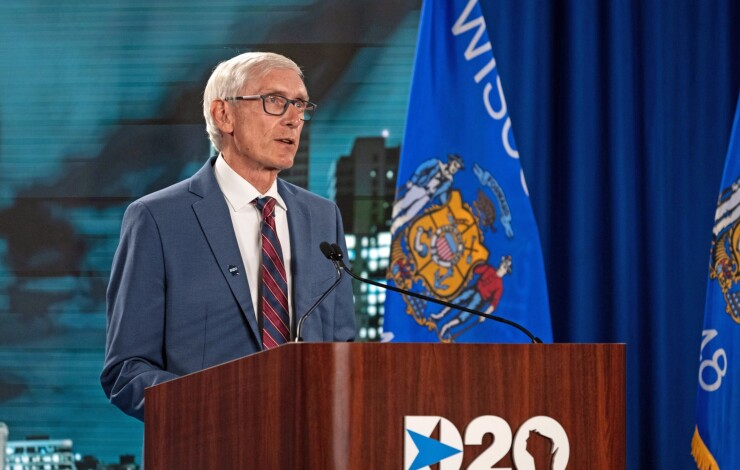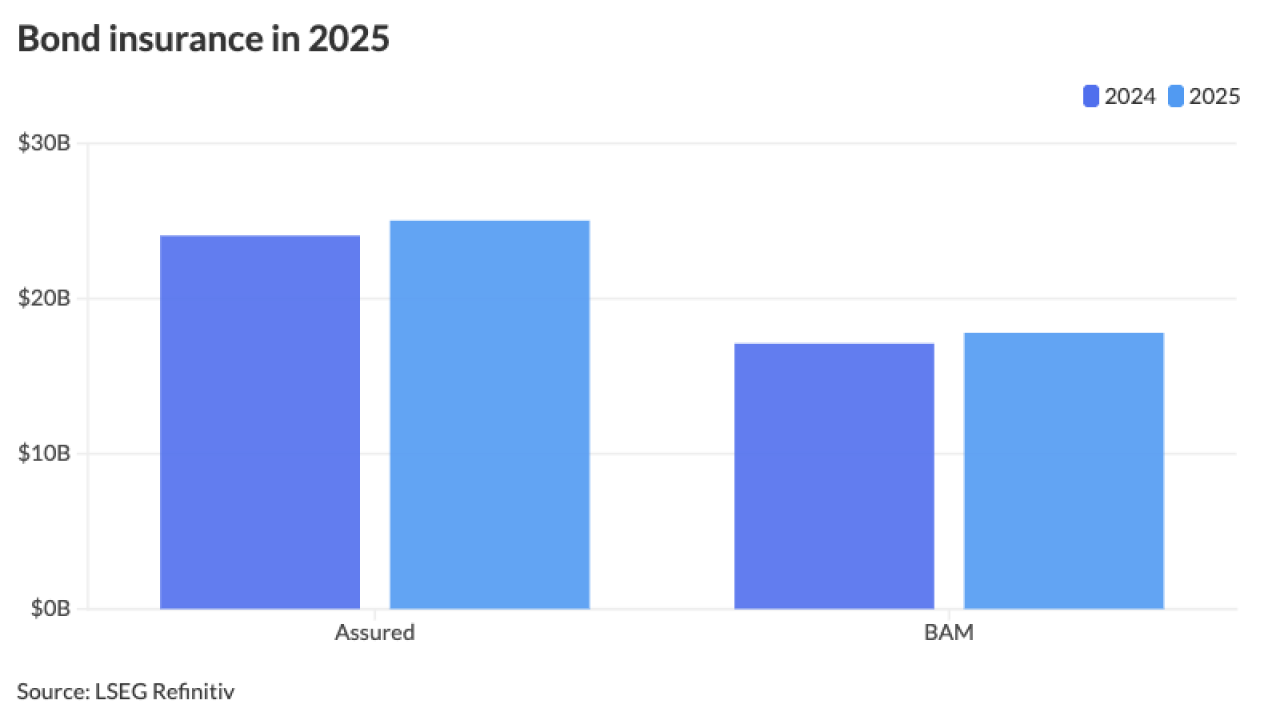Wisconsin Gov. Tony Evers faces his first budget showdown with the legislature’s GOP majorities next week when the state Building Commission votes on his $2.38 billion capital plan.
Evers, a Democrat who has butted heads with the Republican majorities over taxes, spending and measures to slow the spread of the COVID-19 pandemic, unveiled a $91 billion budget Feb. 16 and the capital plan Feb. 22.
“This capital budget will have a far-reaching impact on our communities and our state for generations to come,” Evers said.

About $1 billion would go to the University of Wisconsin system with funding also earmarked for state facilities, sustainable energy projects, juvenile justice facilities, public lands, and community development.
The
“From a capacity and credit perspective, the proposed bonding amounts in the executive and capital budgets for the 2021-23 biennium are well within any limits and do not raise any concerns from a debt management perspective,” Capital Finance Director David Erdman said this week.
The size is in line with what Evers proposed two years ago although the final version approved by lawmakers was trimmed by $600 million.
The state Building Commission will vote on Evers’ proposal Wednesday. Evers chairs the commission that is made up of lawmakers with Republicans holding a majority.
The commission can vote on individual projects by line item and forward the recommendations to the legislature’s Joint Finance Committee or shoot down the entire package.
GOP leaders and the Republican Joint Finance chairs, Rep. Mark Born and Sen. Howard Marklein, have already pushed back against the capital spending levels and want more directed toward prisons. “Repairing, updating, and maintaining” should be the focus of the capital budget, The Wheeler Report quoted Born as saying this week.
The Joint Finance Committee also will write its version of the
Separate from the capital plan, the $91 billion two-year operating budget would pave the way for $1.15 billion of new general obligation borrowing but $700 million of that figure represents a 10-year annual $70 million authorization for the state’s stewardship program so only $140 million would be tapped in the next biennium.
Revenue-backed authority totals $540 million for transportation and environmental borrowing. The budget also gives the capital finance office another $2 billion in refunding authority that Erdman said the state would tap over three years.
Republicans have pushed back against key pieces of Evers’ proposed budget and the Joint Finance chairs have said they intend to remove policy items. The final budget picture is also complicated by the looming infusion of federal relief funds from the $1.9 trillion package President Biden signed Thursday. The state and its local governments are in line to receive $5.7 billion with the state’s share at $3.2 billion. GOP leaders have said the one-time federal dollars should be focused on one-time expenses.

The state heads into the new biennium in
The proposed fiscal 2022 budget totals $45.4 billion, up 9.3% from this year, and for fiscal 2023 $45.6 billion, a less than 1% hike. The net balance expected this year of $1.8 billion would be drawn down to $713 million in fiscal 2022 and to $48 million in fiscal 2023, leaving a structural gap of $660 million heading into the next biennium.
The budget proposal raises general school aid by $600 million and special education by $700 million with total new school funding up $1.6 billion. The University of Wisconsin would receive an additional $200 million and be granted new borrowing powers.
The spending plan Evers calls the Badger Bounceback budget seeks to expand the state’s Medicaid program as allowed by the federal Affordable Care Act. The GOP remains opposed. The
Evers would cap a tax credit now in place for some manufacturers to generate nearly $500 million and hike the capital gains taxes on top earners to raise $350 million. Evers also wants to legalize recreational cannabis. Low income earners and caregivers would see tax cuts.
On the policy side, the budget would rescind some pieces of the controversial Act 10 legislation approved in 2011 under then Gov. Scott Walker, a Republican. It stripped public sector unions of some bargaining rights. The GOP plans to scrap Evers’ move.
“The
The GOP warns of a potential $1.3 billion structural gap by 2025 and say the state would fall back in fiscal strides such as eliminating a longstanding deficit under Generally Accepted Accounting Principles to record a modest $1.5 million balance last year.
On the local level, the budget would pave the way for local governments to seek voter approval for a 0.5% sales tax which is supported by cities such as Milwaukee given stagnant state aid and limits on property tax hikes. That measure too faces legislative obstacles.
In its review of the budget proposal, the non-partisan Wisconsin Policy Forum warns that stakes are high given how businesses, healthcare institutions, universities, schools, and local governments have suffered during the pandemic.
“The governor says the hardship of the moment calls for a comprehensive response from the state. The legislature’s Republican leaders in turn have already criticized the elevated spending and additional taxes, saying these costs will impose a different sort of burden on the state,” the forum writes. “Given the stakes of the present moment, the budget decisions made by state officials will reverberate far into the future.”





